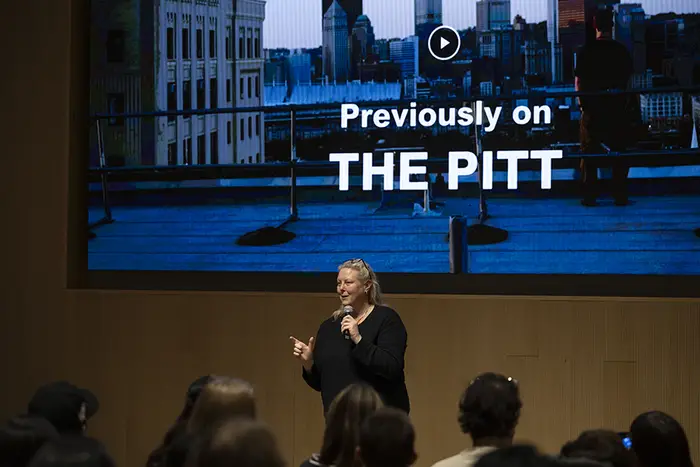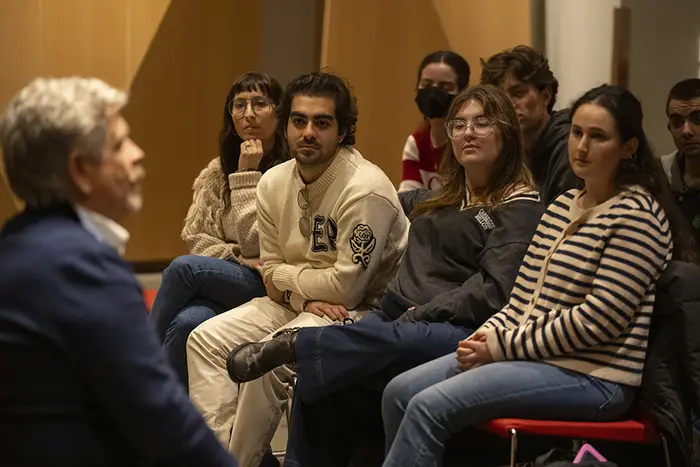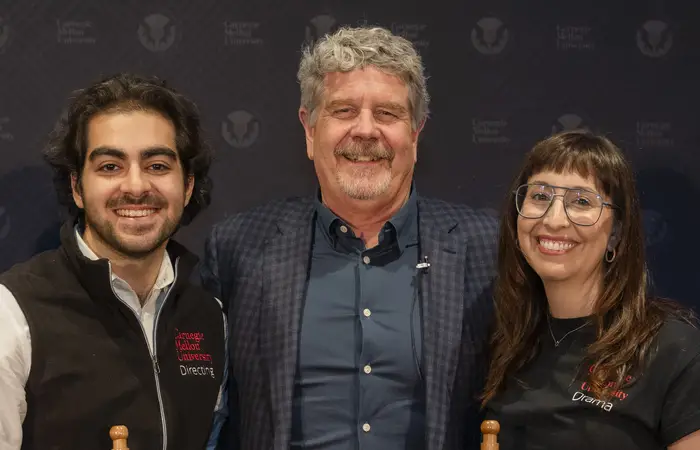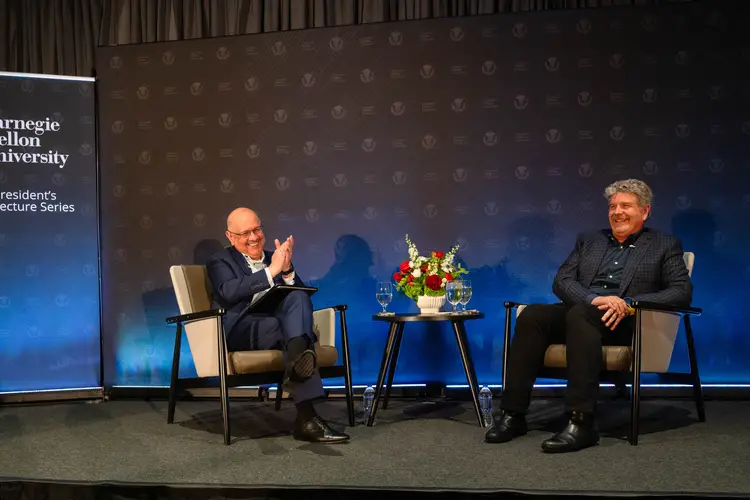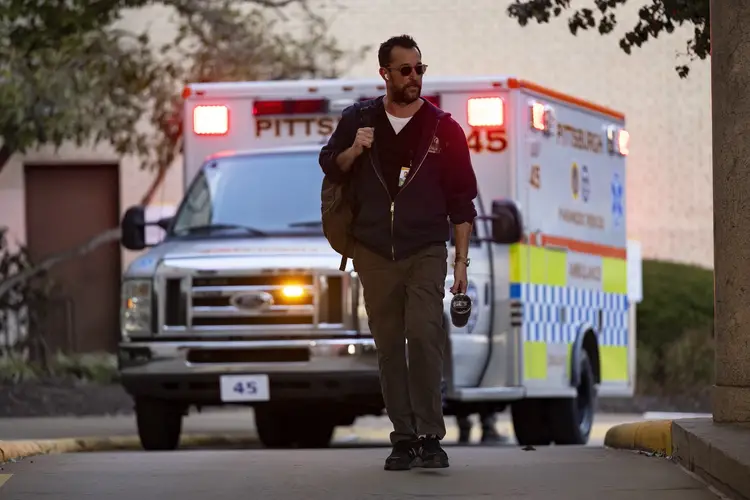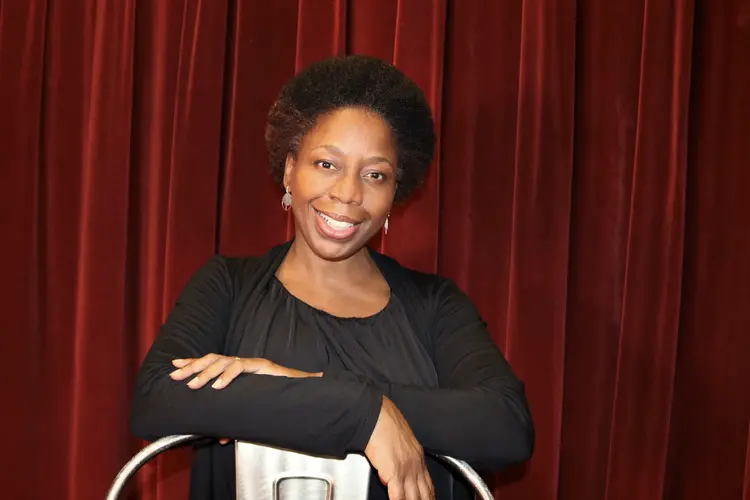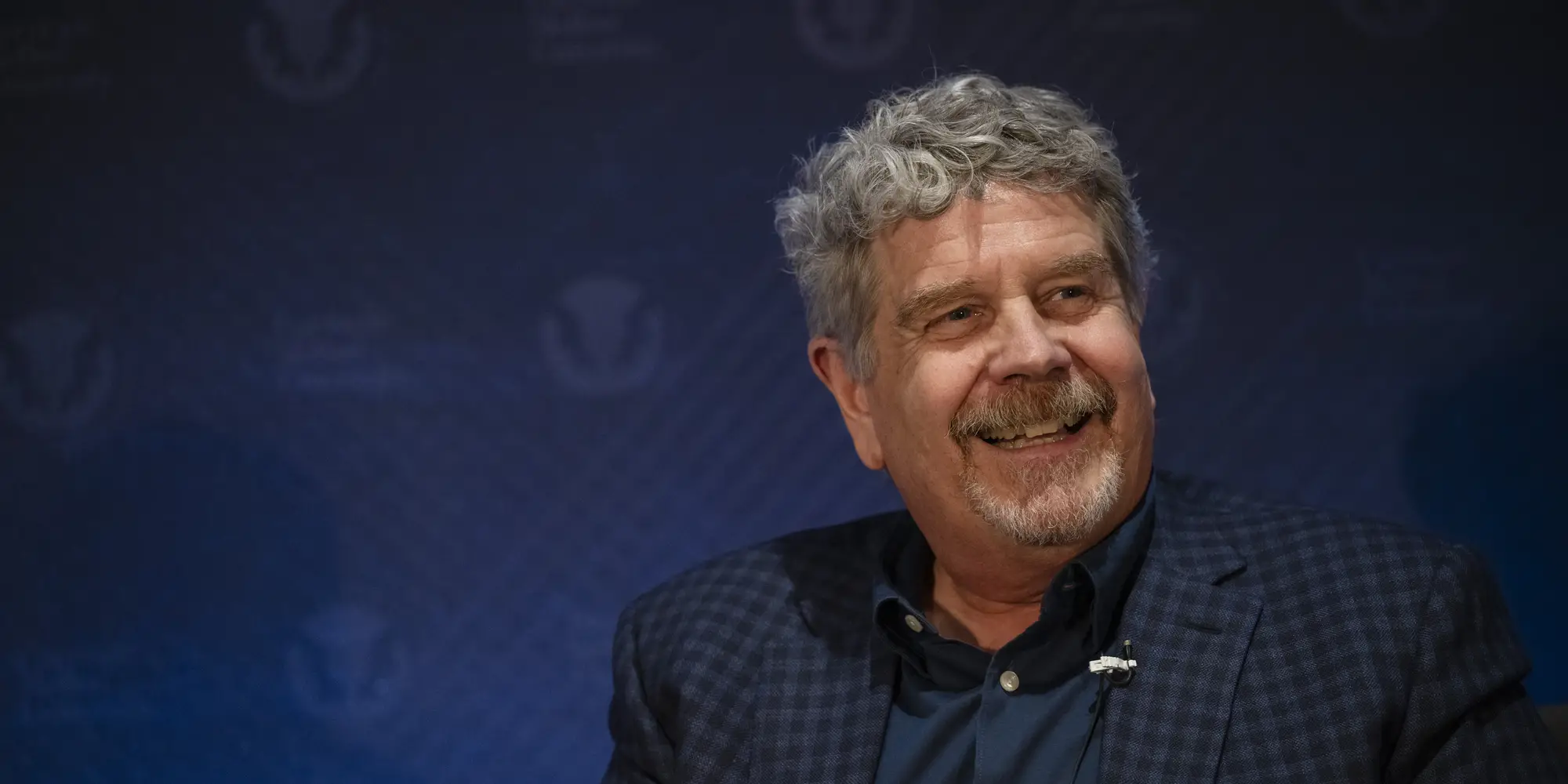
John Wells Reflects on the Impact of His CMU Education
Media Inquiries
Determined to attend Carnegie Mellon University, John Wells applied not once but twice. When his application was accepted, he threw his possessions into his trunk and headed to Pittsburgh. Over the next two years, Wells paid his tuition through a hodgepodge of loans and sold his truck, but by his junior year, he had run out of money to continue his education.
Just as he thought he was done at Carnegie Mellon, William Nelson, the assistant head of the drama department at the time, arranged for an anonymous donation from a former head of the department to pay Wells’ tuition.
“I’m still getting emotional about it,” said Wells, a writer, director and Emmy-award winning producer, during an installment of CMU’s President’s Lecture Series(opens in new window) on April 9.
That moment served as the catalyst for the John Wells Directing Fellowship(opens in new window) — and Wells’ dedication to paying it forward to future generations of Carnegie Mellon students.
“We are truly grateful for John’s deep and meaningful investment in our programs and our students,” said Carnegie Mellon President Farnam Jahanian(opens in new window).
Throughout his recent visit, Wells reflected on the profound impact his Carnegie Mellon University education had on his illustrious career.
He graduated from the College of Fine Arts(opens in new window) in 1979, and has continued working with CMU students in a number of ways, including through the fellowship, which he established in 2010. The fellowship is awarded to CMU students pursuing a three-year Master of Fine Arts degree in directing and covers all tuition costs for their time in the program.
"It empowers directors to grow into the fullest expression of who they are — ethical, generative artist-leaders who understand and honor the transformative power of collaborative storytelling. Upon graduation, our students follow paths as unique as they are, entering the industry with confidence and continued support," said Kim Weild(opens in new window), an associate professor of directing and area chair of the program.
“One of the most thrilling aspects of John’s visits is the one-on-one time he spends with students in focused, insightful conversations that leave a lasting impact,” Weild said. “He dives into the directors’ theater work and their short films with sharp eyes and an open heart, offering feedback that’s as generous as it is inspiring — which is, just as he is. Every session crackles with creativity, insight and joy.”
Though much has changed in the entertainment industry, from the move to streaming platforms to the introduction of AI, Wells said the core things haven’t changed, and a Carnegie Mellon education offers students a professional edge.
“CMU students have an advantage in the classical training they get, particularly for the directing students, in how to work with a lot of collaborators, how to work with actors. They've spent a tremendous amount of time in scene study, in acting, in movement, in understanding how to help your actors and your writers get to what it is you want to actually accomplish. They've had a very broad education in all the different kinds of disciplines that go into it,” he said. “As people understand that you have all of that foundation in craft, you will move faster in your career than those who don't.”
Wells said CMU introduced him to a wide range of humanities, including scene study, drama, literature and various forms of art. Seeing himself first and foremost as a writer, he said the exposure helped him determine what kinds of stories he wanted to tell.
“For me, it was always about human-based stories. I was interested in basic, what used to be referred to as ‘kitchen sink’ drama — the way in which people talk and interact with each other. That’s what I gravitated toward,” he said.
Hearing Wells’ powerful, and at times emotional, message on the value of narrative storytelling resonated with Alon Moradi, a current senior directing major in the School of Drama(opens in new window). Moradi saw it as a full-circle moment — he had also met with Wells when he was a first-year student.
“I've always wanted to make work that was sensitive and unites people but also surprises you with its complexity and ambiguities. And so to hear him talk about the practical use of that, and how that can help with making change in the world, personally felt very helpful,” Moradi said.
Wells related he knew students sometimes question the relevance of certain classes, admitting he, too, had moments where he wondered, “Why am I in this class?”
“Once I started working professionally, I realized, ‘Oh, that's why I was in that class.’ Some of the things that don't seem directly connected to making a living actually provided me with knowledge and education that others don't have, which I can then use,” he said.
Even sitting through a 17th-century English literature class translated into valuable skills in scene analysis and understanding language.
“I always try to caution everyone here to take everything you can take and learn everything you can. You don't know how you're going to use it or what you won't use, but I still use all of it every single day in my job,” he said.
Alexander Johnson contributed to this story.
The President’s Lecture Series aims to engage and inspire the Carnegie Mellon community on issues of emerging and preeminent relevance to society. Learn more(opens in new window)
